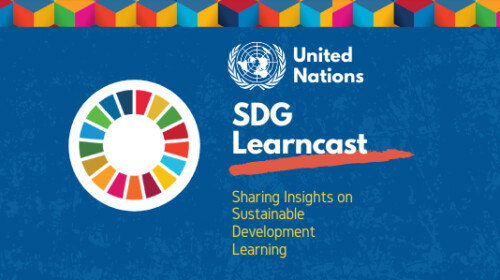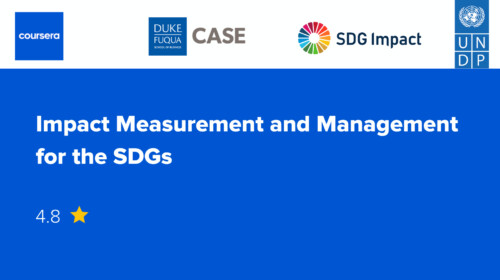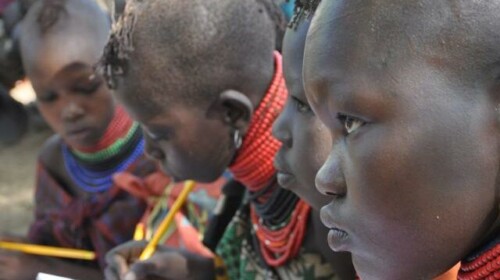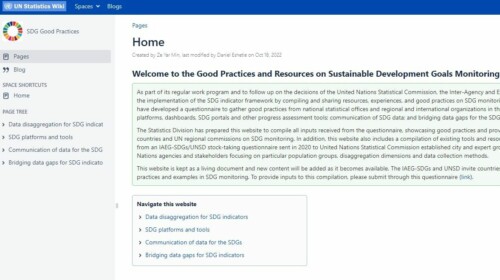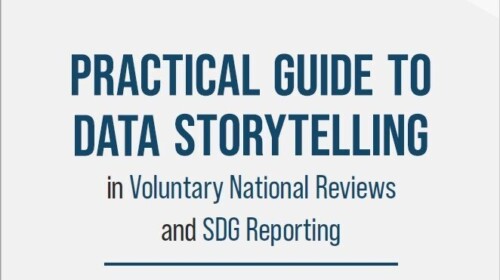The world faces a significant challenge in ensuring food security for its growing population amidst the threats posed by climate change. The increasing reliance on a narrow selection of cultivated crops due to industrial agriculture is causing a concerning reduction in the genetic diversity of plants. This narrowing pool poses a risk to global food security, making our food supply more vulnerable to pests, diseases, and changing climate conditions.
Seed banks play a crucial role in combating this trend by preserving the genetic diversity of thousands of plant species, including traditional and 'forgotten' crops that are resilient to changing climate conditions and offer nutritional benefits. These facilities, alongside innovative agricultural practices, are vital in reintroducing a diversity of crops into modern agriculture. This diversification can lead to more resilient food systems that are capable of withstanding environmental stresses, thereby securing the nutritional needs of future generations.
In this SDG Learncast episode, we're honored to have Dr. Stefan Schmitz, Executive Director of the Crop Trust, as our distinguished guest. Dr. Schmitz brings a wealth of knowledge and experience in the fields of agricultural biodiversity and food security. He will discuss the growing importance of seed banks in the fight against the erosion of agricultural biodiversity and share insights into the Crop Trust's efforts to conserve crop diversity globally. This includes supporting key seed banks worldwide and coordinating projects like the Svalbard Global Seed Vault, aimed at ensuring the long-term preservation and availability of crop diversity for the benefit of everyone.
Dr. Schmitz will delve into the challenges and opportunities in preserving agricultural biodiversity, the critical role of seed banks, and the transformative potential of reintroducing 'forgotten' crops into agriculture. He will also highlight the innovative strategies being employed to support the work of seed banks and the importance of global collaboration in safeguarding our agricultural heritage. Through this conversation, listeners will gain a deeper understanding of how preserving seed diversity and embracing innovative agricultural practices are essential steps toward a sustainable and food-secure future.
[What follows is a transcription of the podcast, modified for enhanced web readability.]
Paulyn Duman: Welcome to the SDG Learncast with me, Paulyn Duman. In every episode, I bring insightful conversations around the subject of sustainable development and learning, helping us all to achieve a sustainable future.
The world's food security is increasingly at risk as climate change threatens a growing population and industrial agriculture's focus on a few crops reduces plant genetic diversity.
This reduction heightens vulnerability to pests, diseases, and climate shifts. Seed banks are essential in countering this trend by preserving the genetic diversity of numerous plant species, including traditional and quote unquote, forgotten crops that adapt well to environmental changes and provide nutritional benefits.
By supporting the reintroduction of diverse crops into agriculture, seed banks and innovative farming practices are key to developing resilient food systems that can meet future nutritional demands.
In this SDG Learncast episode, we are honored to have Dr. Stefan Schmitz, the Executive Director of CropTrust, as our distinguished guest.
Dr. Schmitz brings a wealth of knowledge and experience in the fields of agricultural biodiversity and food security.
Welcome to the SDG Learncast, Dr. Schmitz.
Stefan Schmitz: Great pleasure. Thank you very much.
Paulyn Duman: Dr. Schmitz, can you tell us about yourself and your work at CropTrust?
Stefan Schmitz: Since the year 2020, I'm now the Executive Director of the Global Crop Diversity Trust, or Crop Trust for short.
We are based in Bonn, in Germany. We are an international organization operating under the International Treaty on Plant Genetic Resources for Food and Agriculture. Before joining the Crop Trust in 2020, I've been with the German Ministry for Economic Cooperation and Development, BMZ, for 20 years, and they are leading the work on food, agriculture and rural resources.
The Crop Trust has been established 20 years ago, and its mission is to build a global system of seed banks around the world. The Crop Trust provides financial and technical support for seed banks around the world, for those seed banks who are in need of support.
Paulyn Duman: I'm really curious to hear about this. What are seed banks and how do they serve as a crucial defense against the erosion of agricultural biodiversity? Tell us what challenges do seed banks face, especially in poorer countries?
Stefan Schmitz: Man, when about 12, 000 years ago entered into agriculture, since that time created hundreds, thousands of different varieties of wheat, maize rice, potatoes, and all kinds of crops. Imagine there are today we know more than 100,000 varieties of rice, more than 100,000 varieties of wheat, more than 20,000 varieties of maize all around the world that have been created during the last 12,000 years.
This diversity is extremely important. All these different varieties are adapted to certain environments, to certain climates, to certain soils, to certain pests and diseases. Every variety is able to deal with biotic and abiotic stress and breeders always, they did it in the past and do it today.
They create new varieties by breeding out of the existing. And so, winning constantly again this race against time, when it comes to adapting to new environmental and other challenges. This diversity is a life insurance for survival of mankind is the means to provide food that is adapted to changing environments.
However, during the last fifty hundred years a lot of this diversity is disappearing or has been disappeared from the fields. It made way to pave the way to a more uniform, standardized set of only a few crops, only a few hybrid varieties. This had a lot of advantages. It helped to develop agriculture. It helped many countries on their way out of hunger and poverty. However, the flip side of it, the diversity disappears from the field, but we still need it, we still depend on it. And the more diversity disappears from the fields, The more important it is that we keep this diversity secured, conserved in seed banks, so that from there they can be repatriated to the fields and can be brought to breeding and to research.
Paulyn Duman: That's important to know that the seed banks are making sure that we preserve the diversity of crops, the diversity of seeds and that in the future we will have access to all of these crops. Can you provide us with some examples of these challenges that the seed banks are facing, especially in poorer countries?
Stefan Schmitz: Let me start by mentioning that there are more than 1,700 seed banks around the world. More than 1,700 are registered at the UN Food and Agricultural Organization, the FAO in Rome. We regard about 100 to 200 of those as important. The bigger ones with more than 10, 000 as we say, accessions or seed samples each.
That's only, let's say, the tip of the iceberg. Not to say that we disregard the rest, but just to give a feeling of how many we are and how many are important in particular in many countries of the South and many countries of Africa, Latin America and Asia those gene banks, those seed banks are terribly underfunded.
They are far from being close to international standards. Often, their cooling system is not properly working. In many cases, the staff is not sufficiently trained. There are no proper documentation services, no capacities for viability tests for safety, duplication of the seeds and all of that.
Against this background, the Crop Trust was established exactly 20 years ago, to support those suffering gene banks in the global South. As I said before, we provide financial support, but we also provide technical know-how. We train staff, we support in building information systems and all of that to make sure that all those seeds are really conserved in perpetuity.
And that's the same time the seeds are available for use for farmers, for breeders, for researchers, and this becoming more and more important in times of climate change where there is a constant search for new varieties that are able to withstand longer droughts higher temperatures, severe flooding, and other kinds of events.
Paulyn Duman: I'm really curious to hear about the forgotten crops, but also the opportunity crops. Some crops are very important when it comes to climate resilience. Can you discuss the importance of the forgotten and opportunity crops. How are they transforming agriculture for climate resilience?
Stefan Schmitz: Biologists estimate that there are more than 32,000 varieties of plants that in theory are edible, are ready for human consumption. About 200, 300 of them have real potential, but when looking at realities on the market at statistics, mankind heavily depends on four, five or six crops, mainly wheat, rice, maize, potatoes soy and the like. There are at least 100 more that had been, let's say, neglected by research and breeding over the last hundred years. There has been a tremendous focus on these main staple crops.
And no wonder that there is enough hybrid wheat around the world that is able to feed the world. But this is very risky. We cannot rely on only those few crops. There are many other neglected, underutilized crops, or how we today sometimes like to coin them, opportunity crops. There are great opportunities.
Let's take Millets as an example. Millets played a role in parts of the world many years ago. It still plays a role in some regions or on a local basis. But millets are little wonders. We could use them far better. They are far more stress tolerant when it comes to high temperatures or droughts compared to wheat, for example.
They contain lots of micronutrients. They are healthy. And they have other advantages. And this is only one example. There are many others, Sorghum, Yam, Tef, Phonio, Alfafa, and so on. At least we take it that in Africa alone there are a hundred so-called neglected and underutilized crops.
They never will be able to conquer the global market. However, it is good investment in doing more in collecting them from the wild, bring them to seed banks and make them also available for research and for breeding. Many of them have great potential and we will use them. We need to prepare all the time for new pests, for new diseases, for changing situations, and broader, the base of our nutrition of our diet.
Old economic wisdom tells us, don't put all your eggs in one basket. But this is exactly what we are currently doing in our global agriculture and food systems. We rely on only a few crops, and we should overcome this to make sure that we are able to survive uncertain futures.
Paulyn Duman: I can imagine that there will be noone who would be against introducing or reintegrating crops that are more climate resilient that are, more nutritious, like what you have just mentioned. What are these barriers in reintegrating these crops again into our agricultural system? What is the problem in reintroducing them again?
Stefan Schmitz: The main problem here is that market forces bring demand and supply together in a way that is in a long-term disadvantage. The more markets are focusing on only a few crops and enter into mass production of only a few crops, the cheaper, the more affordable are only those few crops. And the more long- term demand from consumers will focus on those crops. And the more the demand from consumers focuses on those crops, the more the supply again reacts to it. We are in a vicious cycle, and we need to break this one. But if we have the choice, either we do this now well in advance of an upcoming catastrophe or we wait till the catastrophe comes and then all of sudden markets have to change. Yeah, so, the sooner we are able to steer the entire development and give political incentives to, for example, doing more research into neglected crops, the better for the future of world food supply.
Paulyn Duman: We need to act now. We need to reintroduce crops, but I feel like there is much that market demands, and agricultural policies are affecting the diversity of crops. In what way are these also affecting small farmers. Can you provide some examples?
Stefan Schmitz: What we discuss here, bringing neglected crops back to the market is in particular in the interest of smallholder agriculture. Bringing crops to the market could bring new opportunities for small holders, for the local, and for the regional economy.
Let me give some examples. Rice usually is regarded as a globalized crop. However, there are specific varieties in Africa rice crops that are neglected. Currently, the African rice market is dominated by import from Southeast Asia. So, bringing old Africa rice varieties into the Africa market, support smallholder agriculture, that would be a win for everybody.
It would be a win for the planet, for the diversity, it would reduce transport, it would substitute outdated rice far beyond the best before date, which has lost all the nutrients by fresh products. It would add to healthy diets of people. It would help the small holders in Africa, it would help the African countries with their trade balance.
So in the end, you would see only winners. But it takes political will to invest in those neglected and underutilized Africa rice varieties. There needs to be a focus on research, on national agriculture policy, and on development policy, international cooperation as well.
Paulyn Duman: This also reminds me of my father who belongs to a family of farmers. He grew up in Batangas, Philippines there are big farms growing crops, but people are importing rice, and we don't have money to pay for the food and we're not growing them ourselves. The question for me is, how can we ensure investment in these programs and is there in any way technology can be leveraged as well to advance the breeding programs?
Stefan Schmitz: Modern technologies now give great opportunities, and we should use them. That starts with usually using artificial intelligence when building information systems and making sure that all breeders, all researchers on earth know where they can find in what seed bank around the world, they can find what varieties with what properties, genetic traits and all.
There are modern breeding technologies, with artificial intelligence and data mining and using all of those tools that are available today and that could be used in bringing neglected and underutilized crops back to the market at low-cost level, but it requires a political attention.
It requires political decision makers all around the world to understand and acknowledge the advantages of building a sustainable, productive, own national agriculture based on local and regional resources. That. is a prerequisite for bringing those neglected and underutilized crops.
Local solutions by using global diversity, I would say, this is one of the key concerns and that should be the compass of the direction. We could save so much money, we have so many opportunities to improve the livelihoods of farmers, to improve the diets of people by making diversity more available.
Or let's put it the other way around. Diversity ticks so many developmental boxes. It starts with diversity, using it for breeding purposes and making new crop varieties more resilient to climate change. Breeding new varieties that are less demanding on water on fertilizers on soil quality.
I already mentioned Millets as one example here. We are able to breed varieties today, which are less perishable, which are better for long term storage. With that, you can easily reduce post-harvest losses, which adds a lot to greenhouse gas emissions out of the agriculture and food system.
We currently estimate that one third of all the food that is produced does not end up on the consumer's plate. Diversity you can use in all kinds of agroforestry systems. Diversity of plants, shrubs and trees you can use in landscape restoration, in soil rehabilitation, in landscape improvement and the like.
As mentioned before, diversity provides smallholder farmers with more economic opportunities. They can improve their livelihood. And last but not least, using diversity is the most important prerequisite for fighting hunger, for fighting malnutrition. Given the fact that there are more than 2 billion people on earth suffering micronutrient deficiency, suffering hidden hunger.
There are great opportunities by simply making diversity of not just cereals, but in particular fruits, legumes, nuts, and all kinds of crops more available to, in particular to poor parts of the population.
Paulyn Duman: One of the key messages that I got from this discussion is that it's important for world leaders to have the political will to ensure that the investments in these breeding programs that the forgotten crops are actually prioritized, especially because they are more nutritious, more climate resilient.
One of the things that I read from an earlier article from the Guardian this year was about corporations that want to patent seeds, which is also one of the issues because some farmers are afraid of legal litigation from planting some patented seeds.
My question is not so much about the legal aspect, but how can a work of nature be claimed by corporations, what is your opinion about this? And what is the role of Crop Trust in this context?
Stefan Schmitz: There are market forces towards building monopolies, which I don't regard as advantages and positive for securing global food supply and fighting hunger. I'm convinced that the more we all invest in diversity, and the more we invest in revitalization of all those old varieties, and creating something new out of this heritage, the more we do this, the more the global food systems will be independent, will be really food sovereign.
We'll be independent from monopolies, from those kinds of trends which are not healthy for people and for the planet. And again, this requires political will in Each and every country and perhaps above all global cooperation, global common understanding. With the International Treaty on Plant Genetic Resources for Food and Agriculture, we have an excellent instrument at hand.
We need to make the best out of it. Make sure that all those seed banks in the world cooperate closer together. This is one of the activities now the Crop Trust is focusing on each and every seed bank matters, but beyond that, the system of all seed banks is more than the sum of its part.
We want to see a global system of seed banks rising that is efficient, effective, and playing a crucial role in building a productive agriculture in countries and productive agriculture and food systems.
Paulyn Duman: This is the seed savers crusade to work together and collaborate to make sure that we preserve the seeds, which are the insurance for the biodiversity of the future. I'm sure that we have listeners who are interested in the work of Crop Trust. If there are listeners who are curious to learn more about your work and your research and how they can help you or maybe participate in some of your activities what would you tell them?
Stefan Schmitz: Please first check our website www.croptrust.org. You will find all the information and please come to us, and we would be more than happy to answer more specific questions you might have.
Paulyn Duman: Thank you so much. And to our listeners who are interested in seeds in plants and crops, if you love food, this episode is something for you too. Thank you so much, Dr. Schmitz.
Thank you very much.
Paulyn Duman is the Knowledge Management, Communications, and Reporting Officer at the United Nations System Staff College (UNSSC) Knowledge Centre for Sustainable Development and is a coordinator for the Joint Secretariat of UN SDG:Learn, together with UNITAR.
The opinions expressed in the SDG Learncast podcasts are solely those of the authors. They do not reflect the opinions or views of UN SDG:Learn, its Joint Secretariat, and partners.


